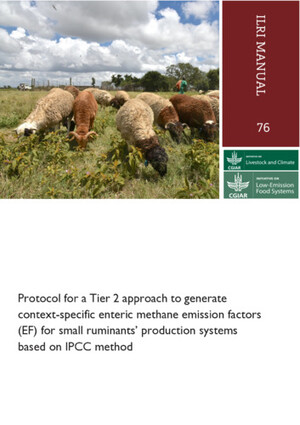
Severe below-maintenance feed intake increases methane yield from enteric fermentation in cattle
Abstract
The relationship between feed intake at production levels and enteric CH4 production in ruminants consuming forage-based diets is well described and considered to be strongly linear. Unlike temperate grazing systems, the intake of ruminants in rain-fed tropical systems is typically below maintenance requirements for part of the year (dry seasons). The relationship between CH4 production and feed intake in animals fed well below maintenance is unexplored, but changes in key digestive parameters in animals fed at low levels suggest that this relationship may be altered. We conducted a study using Boran yearling steers (n 12; live weight: 162·3 kg) in a 4 × 4 Latin square design to assess the effect of moderate to severe undernutrition on apparent digestibility, rumen turnover and enteric CH4 production of cattle consuming a tropical forage diet. We concluded that while production of CH4 decreased (1133·3–65·0 g CH4/d; P < 0·0001), over the range of feeding from about 1·0 to 0·4 maintenance energy requirement, both CH4 yield (29·0−31·2 g CH4/kg DM intake; P < 0·001) and CH4 conversion factor (Ym 9·1–10·1 MJ CH4/MJ gross energy intake; P < 0·01) increased as intake fell and postulate that this may be attributable to changes in nutrient partitioning. We suggest there is a case for revising emission factors of ruminants where there are seasonal nutritional deficits and both environmental and financial benefits for improved feeding of animals under nutritional stress.
Citation
Goopy, J.P., Korir, D., Pelster, D., Ali, A.I.M., Wassie, S.E., Schlecht, E., Dickhoefer, U., Merbold, L. and Butterbach-Bahl, K. 2020. Severe below-maintenance feed intake increases methane yield from enteric fermentation in cattle. British Journal of Nutrition 123(11):1239-1246.







